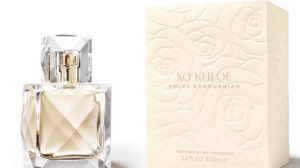Sensitive skin can be tricky to care for, as many common skincare ingredients can trigger redness, irritation, or dryness. Choosing the right ingredients is essential to keep your skin calm, comfortable, and hydrated without irritating. Here’s a guide to some of the most effective, gentle ingredients for sensitive skin.
1. Aloe Vera
Benefits: Aloe vera is well-known for its soothing, hydrating, and anti-inflammatory properties. It helps reduce redness, calms irritation and keeps skin moisturized. Since it’s gentle, it’s often found in products designed for sensitive skin.
How to Use: Look for aloe vera gels, serums, or creams to apply on your face after cleansing. You can also use it as a spot treatment for areas of redness or irritation.
2. Chamomile
Benefits: Chamomile is known for its anti-inflammatory and calming effects. It’s excellent for reducing redness and soothing sensitive skin, especially for those prone to rosacea or mild inflammation.
How to Use: Chamomile extract is commonly found in creams, toners, and serums. Look for chamomile-infused products if your skin feels irritated or inflamed.
3. Colloidal Oatmeal
Benefits: Colloidal oatmeal is finely ground oats known for their moisturizing and anti-inflammatory properties. It’s especially beneficial for sensitive skin conditions like eczema, providing a protective barrier to lock in moisture.
How to Use: Products like moisturizers, cleansers, and masks with colloidal oatmeal help keep skin soft and hydrated. You can also make a DIY oatmeal mask to calm irritation.
4. Squalane
Benefits: Squalane is a gentle, non-comedogenic oil that mimics the natural oils in your skin. It’s deeply moisturizing and helps to strengthen the skin barrier, making it ideal for sensitive and dry skin types.
How to Use: Squalane oil is often found in moisturizers and serums. Apply it as the last step in your skincare routine to lock in moisture without irritating.
5. Niacinamide
Benefits: Niacinamide (Vitamin B3) is a versatile ingredient that soothes inflammation, reduces redness, and strengthens the skin’s protective barrier. It’s also effective for brightening and smoothing the skin without the harshness of other brightening ingredients.
How to Use: Niacinamide serums and creams are excellent additions to a sensitive skin routine. Start with a lower concentration (around 2-5%) and gradually increase if your skin tolerates it well.
6. Centella Asiatica (Cica)
Benefits: Centella Asiatica, also known as “cica,” is a popular soothing ingredient in K-beauty for its anti-inflammatory and healing properties. It’s particularly beneficial for sensitive skin prone to redness, promoting skin repair and calming irritation.
How to Use: Cica creams, toners, and serums are widely available. Apply these products in the evening to help your skin recover overnight.
7. Shea Butter
Benefits: Shea butter is a rich, nourishing ingredient that provides deep moisture without clogging pores. It’s especially beneficial for sensitive skin types that also experience dryness.
How to Use: Use shea butter-based creams and balms to lock in moisture, especially in areas prone to dryness like cheeks, elbows, and hands.
8. Hyaluronic Acid
Benefits: Hyaluronic acid is a hydrating powerhouse that attracts and retains moisture without irritating. It plumps and hydrates sensitive skin, making it look smoother and feel more comfortable.
How to Use: Hyaluronic acid is often found in serums, moisturizers, and sheet masks. Apply a hyaluronic acid serum on damp skin to maximize hydration before sealing it with a moisturizer.
9. Allantoin
Benefits: Allantoin is a gentle, skin-soothing ingredient that promotes skin healing and helps reduce sensitivity. It’s effective in reducing irritation and keeping skin hydrated.
How to Use: Allantoin is often found in cleansers, creams, and serums designed for sensitive skin. Using allantoin-based products can help prevent irritation and keep skin smooth.
10. Panthenol (Vitamin B5)
Benefits: Panthenol is a moisturizing ingredient that helps soothe, hydrate, and repair the skin barrier. It’s ideal for sensitive skin due to its ability to calm redness and enhance skin smoothness.
How to Use: Panthenol is commonly included in moisturizers, creams, and serums. Apply it in your nightly routine to lock in hydration and soothe your skin.
Tips for Using Skincare Ingredients on Sensitive Skin
- Patch Test New Products
Always test a new product on a small area of your skin before applying it to your face. This can prevent irritation if your skin reacts negatively. - Avoid Harsh Ingredients
Stay away from ingredients like alcohol, fragrance, and certain acids (such as glycolic acid) that may irritate sensitive skin. Opt for products specifically formulated for sensitive skin. - Keep a Simple Routine
Sensitive skin often benefits from a minimal routine. Stick to gentle, soothing ingredients and avoid using too many active ingredients at once. - Moisturize Regularly
Hydration is key for sensitive skin, as it helps strengthen the skin barrier and reduce sensitivity. Use a gentle moisturizer daily to keep your skin hydrated.
Finding the right ingredients for sensitive skin can make all the difference in how your skin feels and looks. Gentle, non-irritating ingredients like aloe vera, chamomile, and niacinamide can help keep your skin calm, hydrated, and healthy. Remember to patch-test new products, keep your routine simple, and choose skincare tailored to sensitive skin needs for the best results.



















